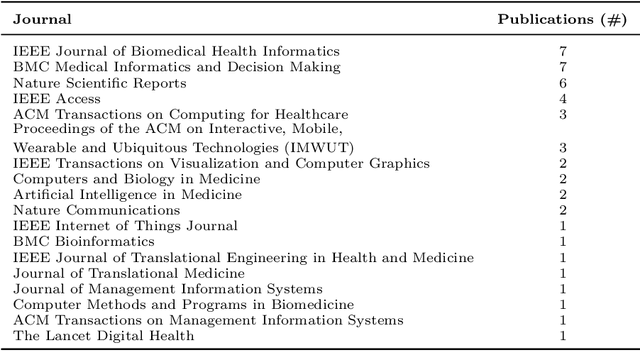Explainable AI for clinical and remote health applications: a survey on tabular and time series data
Paper and Code
Sep 14, 2022



Nowadays Artificial Intelligence (AI) has become a fundamental component of healthcare applications, both clinical and remote, but the best performing AI systems are often too complex to be self-explaining. Explainable AI (XAI) techniques are defined to unveil the reasoning behind the system's predictions and decisions, and they become even more critical when dealing with sensitive and personal health data. It is worth noting that XAI has not gathered the same attention across different research areas and data types, especially in healthcare. In particular, many clinical and remote health applications are based on tabular and time series data, respectively, and XAI is not commonly analysed on these data types, while computer vision and Natural Language Processing (NLP) are the reference applications. To provide an overview of XAI methods that are most suitable for tabular and time series data in the healthcare domain, this paper provides a review of the literature in the last 5 years, illustrating the type of generated explanations and the efforts provided to evaluate their relevance and quality. Specifically, we identify clinical validation, consistency assessment, objective and standardised quality evaluation, and human-centered quality assessment as key features to ensure effective explanations for the end users. Finally, we highlight the main research challenges in the field as well as the limitations of existing XAI methods.
 Add to Chrome
Add to Chrome Add to Firefox
Add to Firefox Add to Edge
Add to Edge